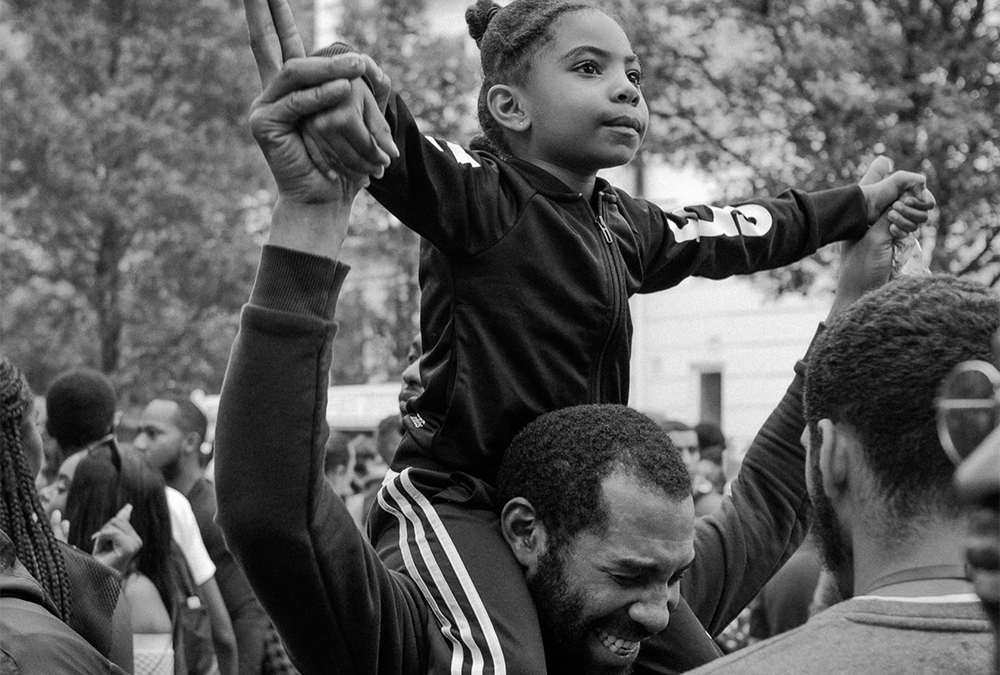As February comes to an end, we must recognize our need to educate and celebrate Black History throughout the year. As we strive for a more diverse and inclusive society, we should be taking steps both personally and professionally to continue the fight for racial equality. I’ve highlighted figures throughout the month who have made contributions on both a small and large scale. For many people starting small in reflection and evaluation is a great starting point. Others may have a passion and drive to get involved on a larger scale. No matter your comfort level, I hope you use these suggestions as inspiration to find your place.
Have Tough Conversations
For far too long, racism has been a topic grouped into the “politics, money, religion,” category. We’ve been unwilling to engage in hard conversations because it may be uncomfortable, or rather we have been afraid of getting it wrong. We must be willing to push past our comfort levels to make a change. We must not just point out racism, but also condemn it when we see it. Do not turn a blind eye in the hopes that someone else will correct actions or words. Additionally, for racial healing to take place, our conversations need to come from a place of empathy, understanding, and validation. Do not be dismissive of the experiences and feelings of people of color. Reading books or watching documentaries gives us the ability to learn how racism continues to affect our current society. Similar to how we listen to survivors of domestic, sexual, or child abuse to gain understanding, we should also listen to people of color to better understand racial injustice.
Take Political Action
There are more than 234 million people who are eligible to vote in the United States. Of those eligible, approximately 157.5 million people cast votes in the 2020 election. In comparison, in the United States in the year 2020, there were approximately 223 million active users of Facebook. And while I don’t have statistics to compare how many posted political rhetoric, it’s safe to assume that more American Facebook users make political posts, than there are voters. CNN analyzed voting records of nearly 80 insurrectionists who were arrested in connection to the Capitol Siege and discovered that 10% did not cast votes in the election, and several were not registered to vote at all.
Police brutality has been a topic that has not gone away over the years. We have seen our society become intensely passionate about police reform. We have started to have conversations about recruits, training, and racial profiling. Generally speaking, this is evidence of poor local governing practices. While local elections may seem boring, and often we are unaware of what is on the ballot, our mayors and city councilors play integral parts in the equitable delivery of public services. The policies and procedures of our local and state governments can mitigate inequality.
Get Involved
While some organizations may have gotten more mainstream media coverage than others, there are hundreds of charitable organizations out there that need your help. Getting involved could be as simple as donating materials they need, money, or your time. Many organizations have struggled and stepped up at the same time throughout this pandemic. They have been hit hard by a lack of donations as well as a lack of involvement. But they also have stepped up to assist those in need throughout their affected communities. As you look for an organization near you, make sure you are doing your research to ensure they are promoting racial healing. One of my favorite tools in gathering information is the Racial Equity Resource Guide. Through this guide, you can find organizations that have a focus on a wide variety of topics.
Dunn, A. (2020, December 31). Fact check: Over 159 million people voted in the US general election. Retrieved February 24, 2021, from https://www.usatoday.com/story/news/factcheck/2020/12/30/fact-check-fals-president-than-were-registered-u-s/4010087001/
Election results, 2020. (2021, January 20). Retrieved February 24, 2021, from https://ballotpedia.org/Election_results,_2020
Kennedy, S. (2017, May 30). Why local elections matter. Retrieved February 25, 2021, from https://inequality.org/research/local-elections-matter/
Lahut, J. (2021, February 1). Some Capitol insurrectionists didn’t vote in the 2020 election that they tried to overturn by Force: Report. Retrieved February 25, 2021, from https://www.msn.com/en-us/news/politics/some-capitol-insurrectionists-didn-t-vote-in-the-2020-election-that-they-tried-to-overturn-by-force-report/ar-BB1dijB5
Sanchez, E., Rodriguez, L., McCarthy, J., & Sepehr, J. (2020, June 2). 7 ways you can take action for racial justice right now. Retrieved February 24, 2021, from https://www.globalcitizen.org/en/content/how-to-support-racial-justice-black-americans/
Tankovska, H. (2021, January 27). Facebook users in U.S. Retrieved February 24, 2021, from https://www.statista.com/statistics/408971/number-of-us-facebook-users/


Recent Comments